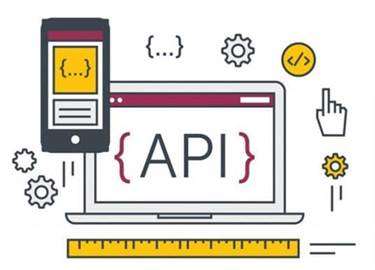For instructions on linking with Jenkins, see the documentation for the Bitbucket Server integration plugin for Jenkins on plugins.jenkins.io. 1.You have configured your BCD scenario and plugged it to your GIT (Bitbucket) repository. Now you want to configure your CI and register a webhook from Bitbucket to execute the pipeline on your Jenkins server. The Advanced Configuration section contains additional options to control when, how, and by whom builds are triggered. All tabs have a Test Configuration button that allows you to perform a configuration check by sending a commit request to Jenkins.

In addition, you can add Bitbucket Server credentials (in the form of username and password) to make it easier for users to set up Jenkins jobs. Users will be able to choose from these credentials to allow Jenkins to authenticate with Bitbucket Server and retrieve their projects. Integrated CI/CD enables you to create a link between Bitbucket Data Center and Server and Jenkins, unlocking a range of benefits.
What tools integrate with Jenkins?
I have taken a example java code and try to build it as jar file in the coming up. In the Variable enter the name of the variable as repository. Login to your Jenkins installation and go you your job and click configure. Log in to your Bitbucket account and go to your main repository.
When i try to build ,you gonna see the interaction will happen over ssh and we safe enough to proceed further. In the Variable enter the name of the variable as branch. In this blog, we will learn how to Integrate Jenkins with bitbucket to automate the process of CI/CD.
Running Jenkins with the plugin enabled
In my opinion, the only lack of skills you have with Concourse is your own knowledge of how to build pipelines and automate things. Technincally there jenkins bitbucket is no lack, i would even say you can extend it way more easily. But as a Con it is more easy to interact with Jenkins if you are only used to UIs.
- For instructions on linking with Jenkins, see the documentation for the Bitbucket Server integration plugin for Jenkins on plugins.jenkins.io.
- Programmed webhook creation in a Server repo when a Jenkins work is saved.
- Bitbucket plugin is designed to offer integration between Bitbucket and Jenkins.
- Supports AWS, Azure, Docker, Heroku, Google Cloud, Github Pages, PyPi and lot more.
- For this to work the tokens you add must have project admin permissions.
- There is java build project that gone use bitbucket source as mentioned ,i have chosen credentials that created just now before.
With Bitbucket Jenkins, you can quickly deploy a project without additional tools. This is an excellent opportunity to optimize enterprise development. Jenkins is a self-contained, open source automation server that can be used to automate all sorts of tasks related to building, testing and delivering or deploying software. As a prerequisite to following the various steps suggested in this article, you would need a public server for installing Jenkins. After the push into the Bitbucket repository, the job is triggered. Once the change (the feature) is done we make the commit in our local repository and the push is made into the remote Bitbucket repository.
Source Markdown
Now with the Jenkins setup for Bitbucket, we are ready to test the complete configuration. As soon as you do commit to the repository, you will be having an automated build triggered initiating a job inside the Jenkins project which you have configured with the repository. Again click Add to add new post content parameter to check the repository. This is because if you have same branch name in two different repositories the build will get triggered on both jobs in Jenkins which are configured with the same branch name. So to fix this here you can add an additional parameter to check if the repository is also matches the correct one.

You should add no less than one Bitbucket Server occasion to Jenkins. This is an easy way to connect Jenkins with the server as per our requirement or we can say that it is a straightforward way. Jenkins works with Jmeter script and executes https://www.globalcloudteam.com/ the Jenkins with valid credentials with the primary key. Now add the server to Jenkins to make it more easy and straightforward with help of Bitbucket features. Programmed webhook creation in a Server repo when a Jenkins work is saved.
Changelog
It should reveal the rationale you had, telling the story of how you end up with that final code. I first used BitBucket because it had private repo’s, and it didn’t disappoint me. Also with the smooth integration of Jira, the decision to use BitBucket as a full application maintenance service was as easy as 1, 2, 3. We are currently using Azure Pipelines for continous integration. But when we look at the online Jenkins is the most widely used tool for continous integration. Can you please give me the advice which one is best to use for my case Azure pipeline or jenkins.

Usually that works fine, but we – as well as others – have discovered that this does not always work and builds which were successful still are reported as “In Progress”. Bitbucket Jenkins is a plugin that helps trigger new tasks in Jenkins when any code changes are committed to Bitbucket. This assembly allows you to manage software versions, playing an essential role in development. This tool significantly increases development efficiency by optimizing program version control. As you probably know, pull requests are a tool for developers to notify the rest of the team when a new feature is completed. This makes everyone aware that they need to revise the code before merging it from the feature branch into the master.
Jenkins pipeline job
It’s part of the Atlassian product family along with Jira, Confluence, and many more tools designed to help teams unleash their full potential. Bonitasoft fully supports digital operations and IT modernization with Bonita, an open-source and extensible platform for automation and optimization of business processes. The Bonita platform accelerates development and production with clear separation between capabilities for visual programming and for coding.
It adds a Bitbucket Server Source Code Manager (SCM) to Jenkins, making it easy to set up a connection to a Bitbucket Server repository when setting up a Jenkins job. It also adds a build trigger to Jenkins that automatically creates a webhook against Bitbucket Server that triggers the Jenkins job on relevant pushes. In the job that we created while setting up our continuous integration environment, we are going to enable notifications when a change is made in the Bitbucket repository. We do that in the Build trigger section in the configure job page. Bitbucket is essential for managing source code, while Jenkins focuses on automating build, test, and deployment processes. Once you’ve added a Bitbucket Server instance to Jenkins users will be able to select it when creating a job, which will make it easier for them to select the repo to be cloned.
Why and How to Become an Open Source Contributor
Notice that the build was triggered because of commit 1. We will confirm that the result is what we expected, the package was properly created and deployed into the Tomcat server. After the selection of the required plugin, we can see a progress bar as shown in the following screenshot as follows.
